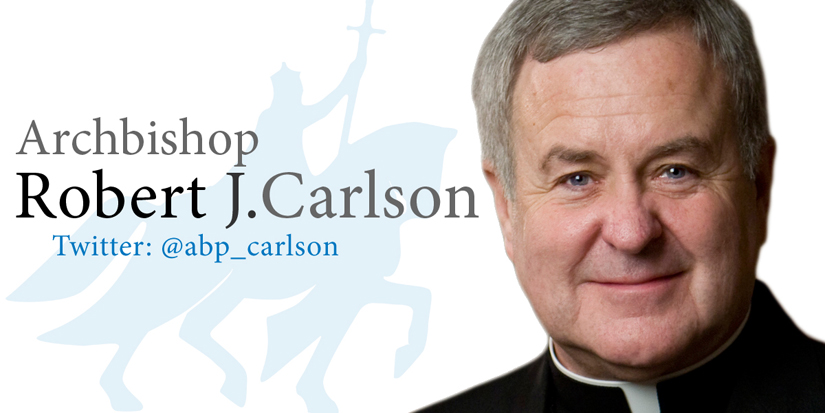BEFORE THE CROSS | Addressing structures of sin requires undivided hearts
Healing our country thoroughly will take longer and cut deeper than most would like to admit

“Let it be done for you as you wish.” That’s what Jesus says to the Canaanite woman who asks for the healing of her daughter (Matthew 15). What if Jesus said the same to us about race relations?
The result, obviously, would depend on what we wish. The problem is that we wish for contradictory things.
We say that we want all people, in every situation, to respect the dignity of human nature that resides in every individual. That would, indeed, help to heal race relations! But then, when it comes to gender ideology, we want to set aside human nature, and let every individual determine for themselves what it means.
We say that we want our cities to be sanctuaries where every person is respected, where there’s a special concern to lift up those who are vulnerable for reasons that are not their fault, and where we help everyone achieve their full potential. That would, indeed, help to heal race relations! But then, when it comes to the unborn, who are also vulnerable for reasons that are not their fault, we want our cities to be sanctuaries where they can be killed with the greatest dispatch, crushing their potential.
What do we want as a nation, and as a city? We want contradictory things — morally, legally and politically. As a result, when Jesus asks us what we want, we can’t respond to Him with a whole and undivided heart. And until we can, we won’t be able to receive the healing He offers.
At the start of the Babylonian Exile, the false prophet Hananiah came to the people with a message: “This time of difficulty will be short. The primary problem is an external enemy, and we’ll be free of it in two years.” Comforting, but misleading. God gave the prophet Jeremiah a deeper vision, but the truth wasn’t comforting: “This is a long-term issue. The problem is primarily inside of us, and will take 70 years to resolve.”
Why was the Exile such a long haul for ancient Israel? Because they had built up a tremendous amount of moral momentum in the wrong direction. That momentum wasn’t going to stop on a dime. It required an interior renewal that took several generations.
Like ancient Israel we have some deep structures of sin in our nation. We’ve given them a lot of momentum, and they come out in a lot of ways. If we really want to address the issue of race relations, we have to address the entire structure of sin that underlies our culture’s approach to human dignity and human nature — and that’s going to take time. Do we want to respect the dignity of human nature in every individual and create a sanctuary where the vulnerable can flourish? The evidence shows that we don’t yet want that with whole and undivided hearts.
I have great hope regarding what we might do to address race relations in the Archdiocese of St. Louis. We have a history of moving ahead of the national curve, going back to Cardinal Ritter’s integration of Catholic schools in 1947. In our own day, I’m tremendously grateful for the work that Joyce Jones is doing in the Office of Racial Harmony.
But the Church, like Jeremiah, needs to be ready to tell our culture a hard truth: This yoke is stronger than you think. Addressing it thoroughly will take longer, and cut deeper, than you’d probably like to admit.
“Let it be done for you as you wish.” Are we ready for Jesus to say that to us?
“Let it be done for you as you wish.” That’s what Jesus says to the Canaanite woman who asks for the healing of her daughter (Matthew 15). What if Jesus … BEFORE THE CROSS | Addressing structures of sin requires undivided hearts
Subscribe to Read All St. Louis Review Stories
All readers receive 5 stories to read free per month. After that, readers will need to be logged in.
If you are currently receive the St. Louis Review at your home or office, please send your name and address (and subscriber id if you know it) to subscriptions@stlouisreview.com to get your login information.
If you are not currently a subscriber to the St. Louis Review, please contact subscriptions@stlouisreview.com for information on how to subscribe.



